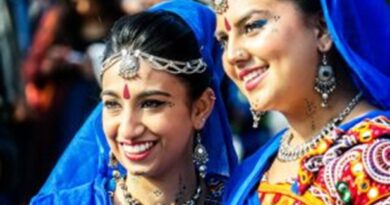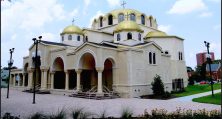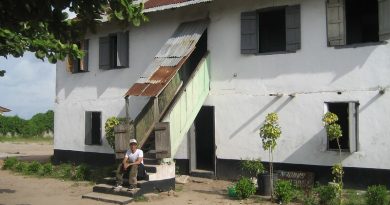The Nigerian Diaspora
The Nigerian diaspora is one of the largest African immigrant populations in the world, but its actual size is very difficult to estimate. The advent of colonialism and the Trans-Atlantic slave trade caused significant population displacement in the region. Portions of the African populations of the Americas can trace its ancestry back to Nigeria, although the exact size of this is ambiguous and is notably distinct from the modern definition of the Nigerian diaspora. The modern Nigerian diaspora has major centres in the United States, the United Kingdom, Canada and Italy.
Nigerian Americans are notably distinct from African Americans and encompass more recent immigrants from the country. While African Americans hailing originally from Nigeria have been present in the United States since the 17th Century, modern Nigerian immigration to the United States has occurred since the mid-20th Century. Nigeria’s declaration of independence was a major turning point in immigration to the United States, unburdening it from the rule of the British Empire and freeing up the country’s movement of people.
Many early Nigerian immigrants to the United States were students. Immigration rates remained fairly low until the outbreak of the Biafra War in 1967, a civil war between the Nigerian government and Biafra, a seccionist state embodying the nationalistic desires of the Igbo people. This conflict caused 100,000 military casualties and up to 2 million civilian deaths. Additionally, there was significant population displacement as many fled the country. The rampant instability caused large numbers of the upper and middle class, particularly medical and business professionals leave. This immigration continued after the civil war ended. The 1980’s saw military dictatorships assume power, with many more liberal-minded, wealthy Nigerians leave the country for opportunities overseas.
The Nigerian population of the United States is generally wealthy and well-educated, with education informing a major aspect in the immigration story. The population is dispersed throughout the country but its most significant centre is, by some distance, in the Dallas-Fort Worth metropolitan area of Texas. The population is predominantly Igbo and were initially formed as refugees and emigres from the Biafra War. The community increased significantly during the 1980’s. The population is believed to be over 50,000 in the present day.

Rapper Chamillionaire is Nigerian American from Texas. Kevin Krejki, Flickr Creative Commons
The main enclave in the Dallas city-centre adjacent to US Highway 75 is known for its wealth of Nigerian-owned businesses including restaurants and a market.
The British Nigerian population is large and long-standing, being traced back to the height of the slave trade. The population is clustered around industrial cities such as London and Liverpool. Prior to Nigeria’s independence, there were a large number of Nigerian students, mainly from the country’s upper class. As with the United States, large numbers migrated to the UK following the turmoil of the Biafra War, comprised of both skilled and unskilled workers. The 1980’s saw a major wave of Nigerian immigrants arrive in the United Kingdom following the fall of the petroleum boom, which left the country in dire economic straits. This coincided with a large number fleeing the oppressive measures of Sani Abacha’s military dictatorship. The population is overwhelmingly centred in London, with Peckham being the most significant enclave in the city. The population is predominantly Yoruba. The community is very well-assimilated, but there are a large number of Nigerian businesses, restaurants and places of worship that remain in the area, giving it a distinctly Nigerian personality. Other significant Nigerian communities include the North West and East of the country.
While the immeasurable impact of the transatlantic slave trade has made measuring the Nigerian diaspora a difficult endeavour, the modern-day diaspora is widespread and encompasses a variety of different social classes.
Main image: Rapper Wale, a famous Nigerian American.




